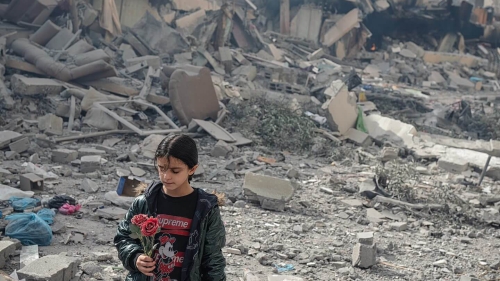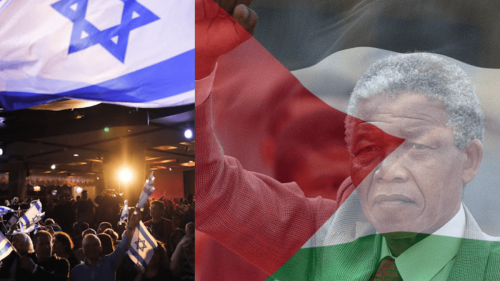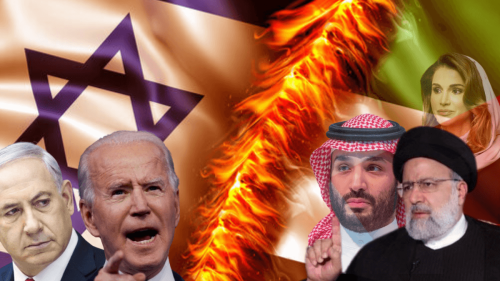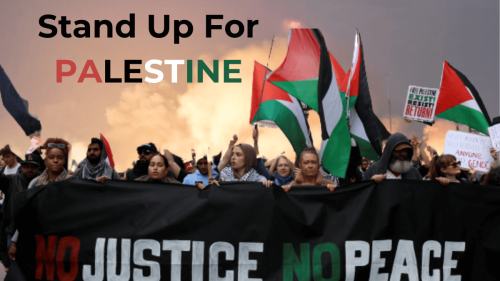Myanmar's Suspension of MSF's Work in Arakan is Criminal
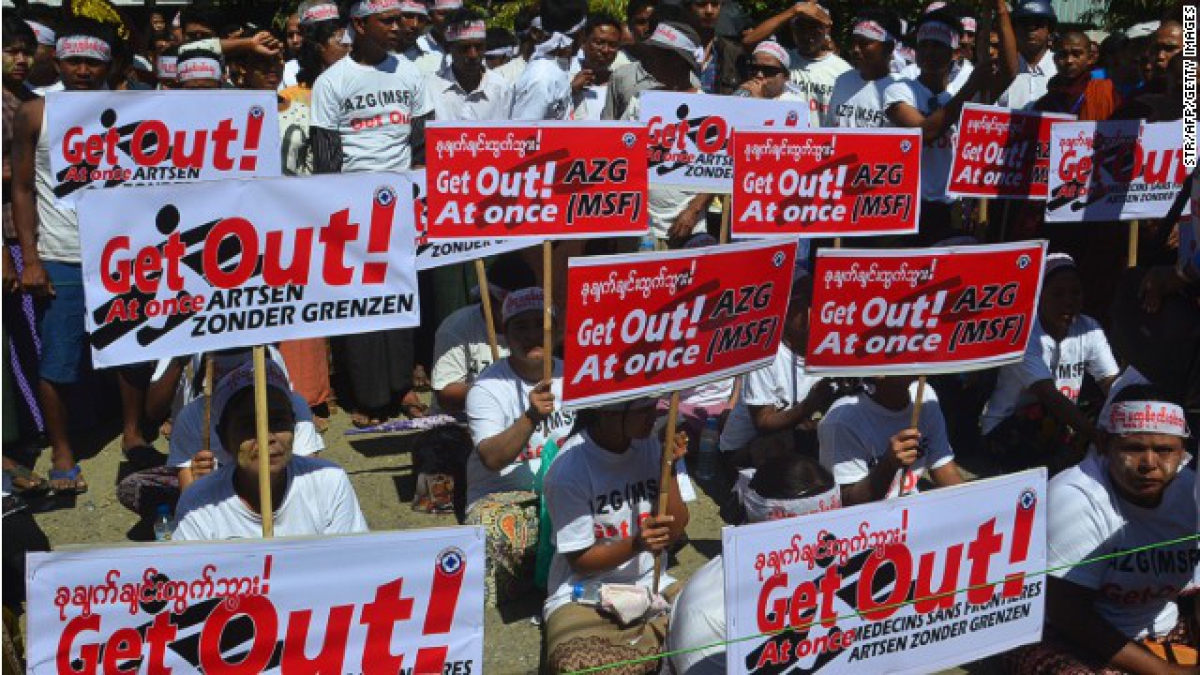
Medecins Sans Frontieres (MSF), the Nobel Prize-winning charity group also known as Doctors Without Borders, have been asked by the Mynamar government to shut its operation inside Arakan. The group has been operating in Burma (Myanmar) since 1992 under an MoU (Memorandum of Understanding) with the Ministry of Health and providing health care to both ethnic Rakhine Buddhists and Rohingya Muslims, a stateless minority who live in apartheid-like conditions and who otherwise have little access to healthcare. The internationally acclaimed group has also been providing healthcare in Kachin and Shan states, as well as programs across the country offering antiretroviral treatment to around 30,000 HIV patients. Since 2004, MSF has treated over 1,240,000 malaria patients in Rakhine (Arakan) state alone.
The stateless Rohingya Muslims of Myanmar are portrayed deliberately as Bangladeshis to deny them basic human rights and justify a genocidal campaign within this Buddhist country. As a result of a series of ethnic cleansing drives since May of 2012, nearly a quarter million Muslims have lost their homes and are now internally displaced. Thousands have been raped, burned, killed and imprisoned to terrorize this endangered group. The Rohingyas are denied access to basic healthcare units and clinics.
MSF have been one of the very few agencies - and in most parts of the Rakhine state of Myanmar the only medical organization - providing the necessary healthcare service to this most suffering people of our time who can't even move from one part of the country to another. Obviously, such humanitarian activities - treating and prolonging the lives of a targeted minority - challenge the eliminationist policy, espoused by the Myanmar's criminal government and the Rakhine state government and their Buddhist population who have been hideously intolerant, racist and murderous.
As reported by Jonah Fisher of the BBC News, aid agencies in Arakan face a very difficult choice of either keeping quiet in situations that are outright inhuman, murderous and apartheid or speaking out, risking infuriating the Buddhist majority to whom non-violence (ahimsha) has lost its meaning. Most agencies have chosen the first option, reasoning that their priority is to try and assist the most needy and vulnerable. MSF have not kept quiet, and consistently raised issues of access and the dire conditions in camps for displaced Rohingya. Not surprisingly, MSF have been unpopular with both the Buddhist people and government - central and local. And had it not been for the fear of negative publicity, MSF would have been shut down by the rogue government when its MoU expired in January 2013. The group had been permitted to continue operations while negotiating an extension, well until lately.
January of this year witnessed another murderous campaign in Arakan State's Duchira Dan [also written Du Char Yar Tan]. The UN condemned the matter. Navi Pillay, the chief of UN Human Rights Commission said that UN had "credible information" that 48 Rohingya Muslims had been killed in violence in early January. "I deplore the loss of life ... and call on the authorities to carry out a full, prompt and impartial investigation and ensure that victims and their families receive justice,'' Ms Pillay said. She added, "By responding to these incidents quickly and decisively, the government has an opportunity to show transparency and accountability, which will strengthen democracy and the rule of law in Myanmar.''
However, as usual, the Burmese authorities said there had been no casualties. But the MSF, much to the annoyance of the government, confirmed that their medics had treated 22 patients near the site of the alleged attack. Such a contrarian view was the final straw that broke Myanmar government's back, or so it appears that they got caught red-handed!
Myanmar government was irate and its Presidential spokesman and deputy information minister Ye Htut announced Thursday that MSF will not be allowed to operate in the country because the group's activities are seen as "detrimental to regional stability" by the government. The group is alleged to have misinformed the international community over incidents in Duchira Dan last month.
"In the most recent Duchira Dan incident, the MSF not only wrote to the Rakhine State government to claim they had treated 15 victims with gunshot and slash wounds but they also announced this to the international community," said Ye Htut. "In response, the regional and central governments asked MSF to arrange a meeting between officials and the persons they allegedly treated."
Challenging the government position, Peter-Paul de Groote, the Head of Mission of MSF Myanmar, said, "We can confirm that our staff treated 22 patients in the area near Du Char Yar Tan [Duchira Dan] village from a variety of violence-related injuries in the days after 14 January."
As I have noted several times, the Myanmar government wants to hide its crimes against humanity and as such the presence of a well-respected international NGO like MSF is loathed in this apartheid state. Lest we forget it did not allow the OIC to open an office. Buddhist protests are stage managed to show that such concerned NGOs, human rights and international monitoring agencies are unwelcome in the killing fields of Myanmar. So it was no surprise that in the last few weeks several protests were staged by Buddhist Arakanese residents in the Rakhine state, demanding that the European relief group and other INGOs be evicted from the region because of their alleged "bias" in favor of the Rohingya minority.
MSF have consistently denied that their aid and assistance is biased, and say that they provide all necessary treatment to those in need regardless of race or religion - Rohingya and Rakhine alike.
The United States on Friday urged Myanmar to allow humanitarian agencies "unfettered access" in Rakhine state, following reports the government had ordered MSF to stop working there. "Free, regular and open access is essential to ensure the benefits of humanitarian activities are delivered appropriately to all people of Rakhine State," a U.S. embassy official told Reuters.
In the midst of worldwide condemnation for closing down MSF activities the Myanmar government on Sunday said that MSF have been allowed to resume operations in Kachin and Shan states, as well as in the Yangon region, also known as Rangoon. However, MSF cannot operate inside Arakan where the group's work is required more urgently than in any other part of Myanmar.
"Whilst we are encouraged by this and will resume these activities for now, MSF remains extremely concerned about the fate of tens of thousands of vulnerable people in Rakhine state who currently face a humanitarian medical crisis," the agency said in a statement.
So what to do with Myanmar? Was MSF wrong to voice its concern about government sanctioned discrimination and neglect of the Rohingya people that are barred from receiving basic healthcare?
Since June of 2012, the civilized world has demanded that an international inquiry committee be allowed to visit the Rakhine state to check the veracity of the claims of ethnic cleansing. However, such demands have met deaf ears in Myanmar. Just as it has happened in other places of Myanmar, Maungdaw Township - the latest scene of the crime - remains closed to journalists, NGOs and human rights groups. A request by U.S. Ambassador Derek Mitchell to include an international representative on the investigating team was also denied by Foreign Minister Wunna Maung Lwin, who said it was "an internal affair".
In a slow but calculated manner the Rohingya people are getting killed and pushed out of this apartheid state. Typical of a genocidal mindset, Myanmar government is still in the denial state.
The Rohingyas of Arakan are in a dire state. They are encamped in prison like cells. In search of a new roof over their head, security for their loved ones and earning a livelihood many Rohingyas have chosen to brave the unsafe ocean while many continue to die in that process. And many have put their lives in the hands of human traffickers within Myanmar to get out of the Rakhine state. To them, any place is better than the land of the murderous savages.
On February 12, eighteen Rohingyas from Minbya and Mrauk-U townships in the southern part of Arakan state left for Yangon, the former capital of Myanmar, with two human traffickers of Chin ethnicity. On February 14, after the group had reached Kone Kar stream outside of Minbya Township they were ambushed and severely attacked by an organized group of Rakhine extremists. Only 7 managed to escape and return back to their villages after a few days, the remainder - eleven Rohingyas - were slaughtered.
The names of the 11 killed Rohingya people are: (1) Nazir Ahmed S/o Molvi Abdul Jail (18-year-old), (2) Kala Chay S/o Abdul Rahman (17-year-old), (3) Maung Ba S/o Abdul Razak (25-year-old), (4) Abdul Mabud S/o Dudu Ali (23-year-old), (5) Zawna Bawdin S/o Fawzol Karim (19-year-old), (6) Enamul Haque S/o Mohammed Hamza (22-year-old), (7) Ali Akbar S/o Mohammed Akbar (25-year-old), (8) Mohammed Noor S/o Abu Taher (30-year-old), (9) Anwar S/o Noor Hasan (20-year-old), (10) Omar Farooque S/o Abdul Gaffar (24-year-old) and (11) Wazi Rahman S/o Abdul Hashim (25-year-old).
And yet, the apartheid state continues to give the impression that nothing is going wrong inside Myanmar; and there is no incident of mass killings, harassment, abduction, etc., against the minority Muslims.
How long can Myanmar go on with her Goebbels-type propaganda hoping that her evil falsehood would triumph over truth?
Genocide is a process and not an event. If the international community is looking for that ultimate event before they take concrete actions to tame the savage regime and its partners within the Buddhist population in Myanmar, I am afraid there won't be any Rohingya left alive. They must take punitive action now. The closure of the MSF activities inside Arakan should be a sufficient eye-opener for anyone willing to wake up and smell the cup of coffee or tea.
*****
Dr Habib Siddiqui has authored 10 books. His latest book - Devotional Stories - is now available from A.S. Noordeen, Kuala Lumpur, Malaysia.
Topics: Burma, Human Rights, Rakhine State, Rohingya
Views: 3093
Related Suggestions











